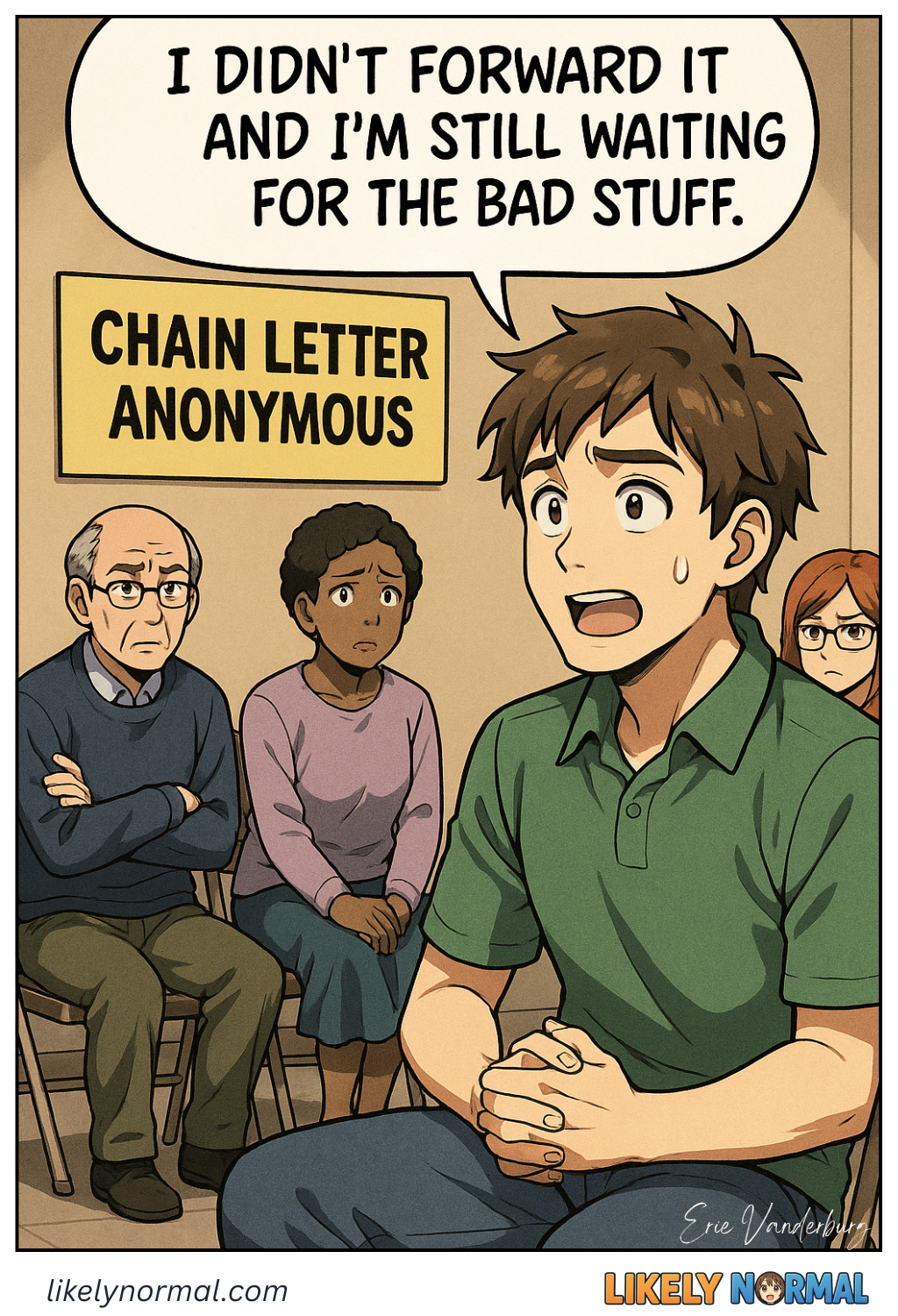Chain Letter Anonymous
There was a time when opening your email felt like stepping into a carnival of chaos—where every forwarded message carried either the promise of unimaginable wealth or the threat of supernatural consequences. These weren’t just emails; they were digital chain letters, the original viral content, and we treated them with the same reverence as ancient scrolls of prophecy. The rules were simple: forward this to ten people within the next hour, or suffer the consequences (which ranged from seven years of bad luck to Bill Gates personally blacklisting you from ever receiving free money).
The psychology behind why we fell for these was flawless. Who wouldn’t want to believe that Microsoft was randomly selecting generous souls to reward with $500 just for spamming their friends? Or that ignoring an email about a sick child would somehow make you complicit in their suffering? The genius was in the framing—these messages preyed on our greed, our guilt, and our deep−seated fear of missing out. One hallmark of the chain letter was that they were always verified by some distant acquaintance′s cousin′s neighbor who swore it worked for them.
The threats were even more creative. Break the chain, and you’d be haunted by the ghost of a Victorian child. Delete this email, and AOL would sue you for $257. The sheer specificity of these consequences was what sold it—because nothing says “legally binding” like a poorly formatted, Comic Sans-filled forward from your aunt’s book club friend. And let’s not forget the tech-savvy among us who genuinely believed that an email could physically destroy their computer (“Do not open the good times virus—it will erase your hard drive and also probably your soul”).
In hindsight, it’s embarrassing how easily we were manipulated. We clogged inboxes, strained friendships, and lived in low-grade terror of digital karma—all because some stranger on the internet told us to. But there was also something weirdly charming about it. These chain letters were the early internet’s version of campfire stories—shared rituals that made the vast, anonymous web feel a little smaller, a little sillier.
Today, the tradition lives on in new forms (looking at you, viral YouTube challenges and “share this post or you’ll have bad luck” Facebook memes). But nothing will ever capture the magic of that era when we truly, earnestly believed that the “forward” button held the power to change our fates. Now if you’ll excuse me, I need to go send this article to 12 people—my horoscope said it’s the only way to avoid Mercury retrograde. You get it.

Discussion ¬